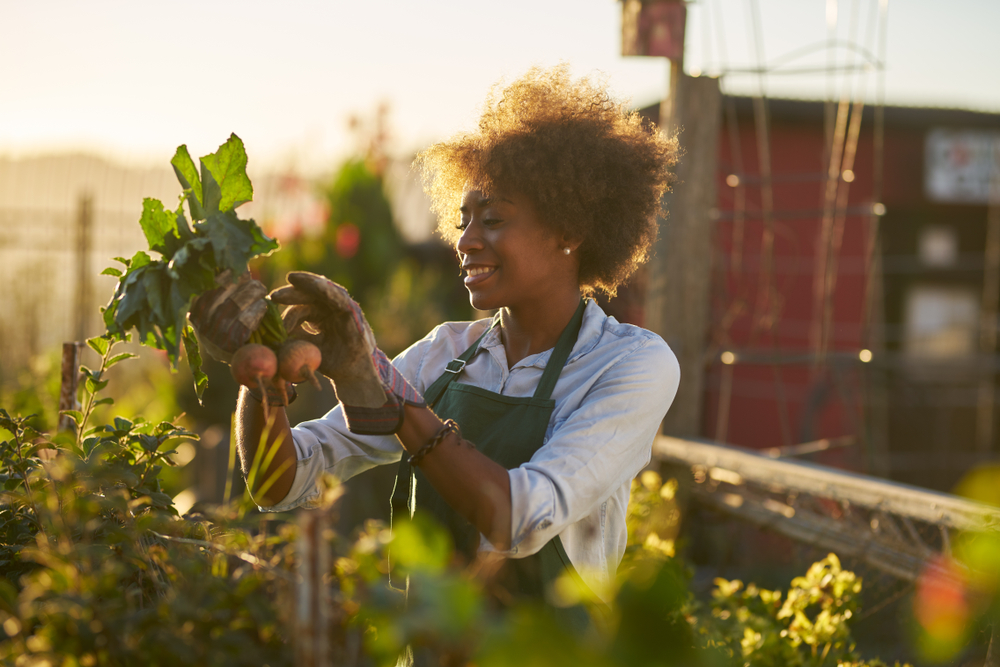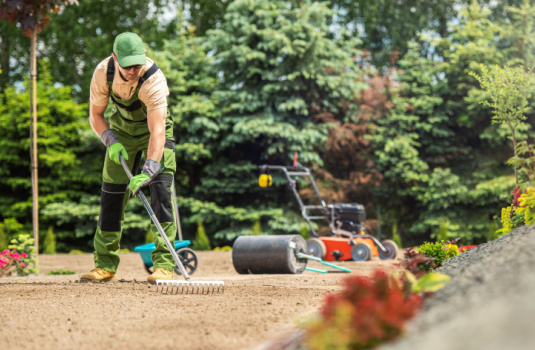
Georgia homeowners looking for easy ways to grow and nourish a more ecologically smart garden can take a few simple steps. For example, using less water and growing plants native to the Peach State will go a long way towards that ecological awareness. And, such a garden can be as wise an investment in your property as your homeowner’s insurance coverage in Georgia.
Here are six easy-to-adopt tips to make your garden more planet-friendly.
1. Use No More Water Than You Must
Have you ever seen lawn sprinklers on full power during a rainstorm? It’s not that uncommon a sight, unfortunately. Not only is such water use wasteful, but it can also flood your garden and destroy roots rather than help them grow.
Georgia is at its wettest in March, but the spring and summer are all part of the state’s rainy season. Check weather reports, especially during this time, and see when you need to water your garden. Letting nature handle the task as often as you can is likely to provide savings on your water bills while you help conserve the planet’s water supply.
If you have a smart home, you might even be able to turn on and off your timer-controlled sprinkler from work or vacation as weather reports dictate.
You can reduce water usage in a variety of other ways, such as utilizing compost and mulch to capture and retain moisture, watering during the cooler morning or evening hours to reduce evaporation and installing a drip irrigation system. By employing these methods, you can take advantage of the natural power of the environment to conserve water.
2. Grow Native
Native plants—those that grow naturally in the Peach State—are native for a reason. It means that they thrive in the state’s climate. For instance, they need just about the same amount of water as Georgia typically provides.
Gardeners who want the most unique gardens might try to grow exotic trees and flowers that are not native to the region. As a result, the plantings might require excessive amounts of water. If Georgia soil doesn’t make them thrive, the gardeners might add a fertilizer that can be damaging to the environment.
Fortunately, Georgians have a wide selection of native flora and fauna from which to choose. Stay native and stay sustainable. You’ll also find that native plants require less labor and look just as beautiful as anything grown in some exotic locale.
3. Compost Your Gardens
Chemical fertilizer can cause groundwater pollution and even degrade your soil, making it more reliant on fertilizer. But is there an alternative?
First, if you grow plants that are native to Georgia, you might well find that your soil is more than sufficient. But another way of helping to save the planet in a couple of ways is to compost.
Composting will keep organic waste out of landfills, which is its first ecological benefit. Compost is also an all-natural fertilizer, so adding it to your soil will enrich it without any unwanted side effects, such as those of chemical fertilizers.
Organic materials that can be easily composted include leaves and grass clippings, coffee grounds, and most foods and vegetables.
4. Mulch to Avoid Damaging Pesticide Use
The dreaded weed. Most of us don’t have the time to hand-pick weeds from our lawns and gardens—so we spray pesticides. Much like chemical fertilizers, pesticides can pollute the groundwater. They can also harm or kill visiting birds, other plants, butterflies, and beneficial insects.
Instead, use mulch. Mulch is a protective layer placed over your gardens to conserve water, protect against soil erosion, block weed growth, and moderate temperatures under the hot Georgia sun.
Bark chips are standard, but grass clippings and straw are other organic and Earth-friendly materials used to mulch Georgia gardens. You’ll be rewarded with a healthier garden and multiple sustainability benefits.
5. Grow Your Own Shade
Ever sit under a shade tree in the middle of a sultry Georgian summer? It helps keep you cooler, doesn’t it? That’s why you should consider planting and growing such native Georgian trees as the American sycamore, tulip poplar, red maple, or others.
Each of these trees would add beauty to any property. In addition, if planted strategically, they might eventually also provide welcome summer shade—perhaps even reducing your need to run the air conditioning so much. That could be major savings on your electric bill.

6. Make Your Gardens Wildfire-Resistant
Georgia gets some 3,500 wildfires annually, mostly outside of the big cities throughout the state.
You can make your gardens wildfire-resistant based on the trees, shrubbery, and vegetation you grow and the strategy in the layout. Dogwoods and Little Gem magnolias are among the small trees native to Georgia that reduce fire risk, as well as such vegetation as hibiscus, camellias, and many others.
Compost and bark chip mulch are fire-resistant ground covers. Plant your ground cover about thirty feet from your home. This will help stop flames from getting dangerously close and give firefighters room to work between your home and the fire.
Some of the Many Benefits of Incorporating More Sustainable Gardening
Sustainable gardens can lower energy costs, improve your air quality, and reduce water consumption. Additionally, they’re aesthetically pleasing and provide an ideal space for outdoor relaxation.
Your attractive and eco-conscious gardens and landscaping can act as effective billboards when your home goes on the market. As the first visual hint of what awaits, the well-planned exterior space will get prospective buyers in the right frame of mind even before they step into your home.
In short, the tender and sustainable care of your gardens could enhance your family’s quality of life, add to your home’s beauty, and might even increase its value.
Going Green Can Reduce Your Georgia Home Insurance Costs, Too
We’ve explained how the cultivation of fire-resistant gardens can make your home safer in the event of wildfires. Mention your sustainable and fire-resistant grounds to your homeowner’s insurance agent, and you might qualify for a discount on your coverage. Now that’s a smart way to commemorate ecological awareness!
You’ll also be pleased to learn that your standard home insurance policy generally covers damage or loss in your yard in much the same way it covers the exterior and interior of your home.
For instance, just as you can file a homeowners insurance claim for damage to your house and belongings caused by fire, tornado, hurricane, or other calamities, so too can you make a claim for damages from those same causes to your lawns and gardens.
And yes, even theft or vandalism to your garden can be a legitimate home insurance claim.
Choosing to learn new ways to save on your homeowner insurance coverage through sustainability is a smart decision.